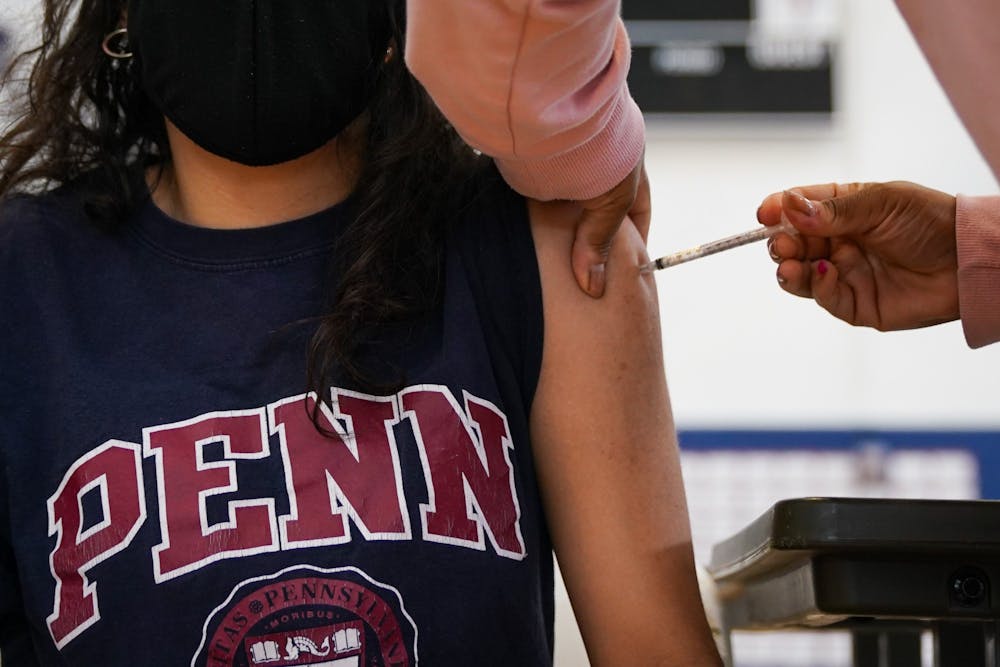
Penn will now require all eligible students, faculty, postdoctoral students, and staff to receive a COVID-19 booster shot by Jan. 31.
Credit: Chase SuttonPenn will require all eligible community members to receive a COVID-19 booster shot by the end of January amid rising campus positivity rates.
Penn President Amy Gutmann, Interim Provost Beth Winkelstein, Senior Executive Vice President Craig Carnaroli, and Chief Wellness Officer Benoit Dubé wrote in an email to the Penn community on Tuesday afternoon that all eligible students, faculty, postdoctoral students, and staff must receive the booster shot by Jan. 31. Those who were previously granted medical and religious exemptions from the vaccine requirement will not be subject to the new requirement.
Administrators wrote that Penn plans to hold additional booster clinics at the start of the spring semester after holding the first booster clinic on Dec. 15, 16, and 17 in Pottruck Health and Fitness Center's Gimbel Gymnasium.
This requirement will apply to all community members who received their second dose of the Pfizer-BioNTech or Moderna vaccine at least six months ago, or the Johnson and Johnson vaccine two months ago, and will include students in the University's online programs. The administrators added that anyone who is not eligible to receive the booster by Jan. 31 must receive it within 30 days of becoming eligible.
Once community members receive booster shots, they must upload documentation in the Student Health Portal or Workday platform to fulfill the requirement.
Between Dec. 12 and Dec. 18, 241 community members tested positive for COVID-19 — the highest number of new cases in a single week — with a University-wide positivity rate of 2.26%, an increase from 1.3% in the previous week.
Nearly half of these new cases were linked to the graduate student community, which had a positivity rate of 2.90%, while none were linked to classroom or workplace transmission — a trend that has remained constant throughout the in-person semester.
"Your health and safety remain our top priorities, and we are committed to continually altering our public health guidance based on current data and the advice of our Penn Medicine colleagues, the Philadelphia Department of Public Health, and state and federal agencies," administrators wrote in the email.
The Daily Pennsylvanian is an independent, student-run newspaper. Please consider making a donation to support the coverage that shapes the University. Your generosity ensures a future of strong journalism at Penn.
Donate




